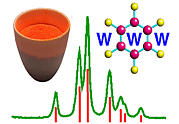 |
Search Engines |
 |
Search Engines |
Search Engines
Sooner or later you will want to find out if there are any pages on the WWW on a topic of your interest. The tool to use is called a search engine. You usually start these engines by typing in keywords. There is a great variety in how these search engines index pages. The most sophisticated ones make use of keywords in the so-called meta-statements in the header of the HTML of the page. The less sophisticated scan the body of the page for particular recurring words. How do you know which search engine to use? If you are totally new to search engines and do not want to do much reading about individual ones, a good place to start is:
![]() Eureka Top Ranked
Search Engines
Eureka Top Ranked
Search Engines
This search engine provides a simple, consistent interface to each search engine. A detailed description and minireview of most search engines is also included.
List of Search Engines
Generally speaking, one can discern between two types of search engines, single and multiple search engines. The multiple search engines usually search many single search engines at a time. It is difficult to say what are the best search engines, as this varies over time, with fashion and per person. Currently, one of the most popular ones is Google (see below). Some search engines are linked.
![]() AltaVista
(auto-redirects to regional sites: e.g.
AU,
DK,
FR,
NL,
SE,
UK,
US, & others)
AltaVista
(auto-redirects to regional sites: e.g.
AU,
DK,
FR,
NL,
SE,
UK,
US, & others)
![]() AOL
AOL
![]() ChemIndustry
ChemIndustry
![]() CNET Search
CNET Search
![]() DogPile
DogPile
![]() Excite
(Regional Sites: AU,
CA,
DE,
FR,
NL,
UK, & others)
Excite
(Regional Sites: AU,
CA,
DE,
FR,
NL,
UK, & others)
![]() Euroseek
Euroseek
![]() Galaxy
Galaxy
![]() Go (Infoseek)
Go (Infoseek)
![]() Google
Google
![]() GoTo
GoTo
![]() Hotbot
Hotbot
![]() Lycos
(Regional Sites: DE,
FR,
NL,
UK,
US, & others)
Lycos
(Regional Sites: DE,
FR,
NL,
UK,
US, & others)
![]() Magellan
Magellan
![]() MetaCrawler
MetaCrawler
![]() Northern Light
Northern Light
![]() Starting Point
Starting Point
![]() SuperCrawler
SuperCrawler
![]() WebCrawler
WebCrawler
![]() Yahoo
(Regional Sites: AU,
CA,
DE,
FR,
SE,
UK, & others)
Yahoo
(Regional Sites: AU,
CA,
DE,
FR,
SE,
UK, & others)
|
© Copyright 1995-2006.
Birkbeck College, University of London.
|
Author(s):
Jeremy Karl Cockcroft Huub Driessen |